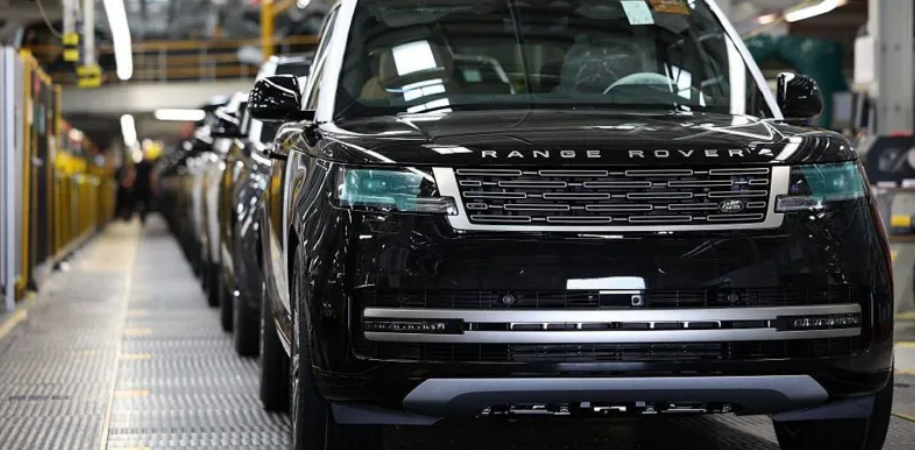Vehicle production in the UK fell sharply in April, marking the lowest output for the month in more than 70 years, excluding the 2020 pandemic shutdown. The Society of Motor Manufacturers and Traders (SMMT) attributed the decline to a combination of US tariffs, fewer working days due to Easter, and ongoing shifts in the industry toward electric vehicles (EVs).
Just 59,203 vehicles rolled off UK production lines last month—a 16% drop from April 2024 and a 25% decline from March. The downturn was amplified by a surge in exports in the previous month, as automakers scrambled to ship cars to the U.S. ahead of new tariffs introduced by President Donald Trump.
Jaguar Land Rover (JLR), one of Britain’s largest carmakers, is currently facing steep tariffs of 27.5% on vehicles sent to the U.S. The company, which exports cars from its UK operations to its American division, is being hit by both export and import taxes. JLR has expressed frustration over delays in implementing a UK-U.S. agreement that would cap tariffs at 10% for up to 100,000 vehicles.
“It’s costing us a huge amount of money,” the firm said in a statement, urging the governments to expedite the deal’s activation.
Exports, which account for the bulk of UK car production, fell by over 10%, driven by waning demand from key markets such as the U.S. and the EU. Domestic production also slipped by 3.3%.
While some of the fall in output was attributed to seasonal factors—Easter reduced the number of working days in April—the broader picture points to deeper challenges within the automotive sector. The SMMT reported that year-to-date production is at its lowest level since 2009.
Nathan Coe, CEO of online car retailer AutoTrader, noted that the domestic market remains relatively stable, but exporters are bearing the brunt of international disruptions. “More new and used cars are being sold in the UK, but export-related manufacturing is clearly suffering,” he said.
Industry analysts say the UK is also feeling the pinch of softer EV policy commitments. In April, the government eased targets for electric vehicle sales and reduced penalties for exceeding emissions thresholds. This policy shift has caused further uncertainty for manufacturers, compounding the challenges posed by global competition and trade barriers.
Professor Peter Wells of Cardiff University highlighted that similar production declines are being seen in other countries, but the UK’s exposure to Chinese imports and inconsistent policy support for EVs make its situation particularly volatile.
“Industry needs stable, clear policies—on tariffs, emissions, and electrification,” said Prof Wells. “Right now, the environment is anything but that.”


